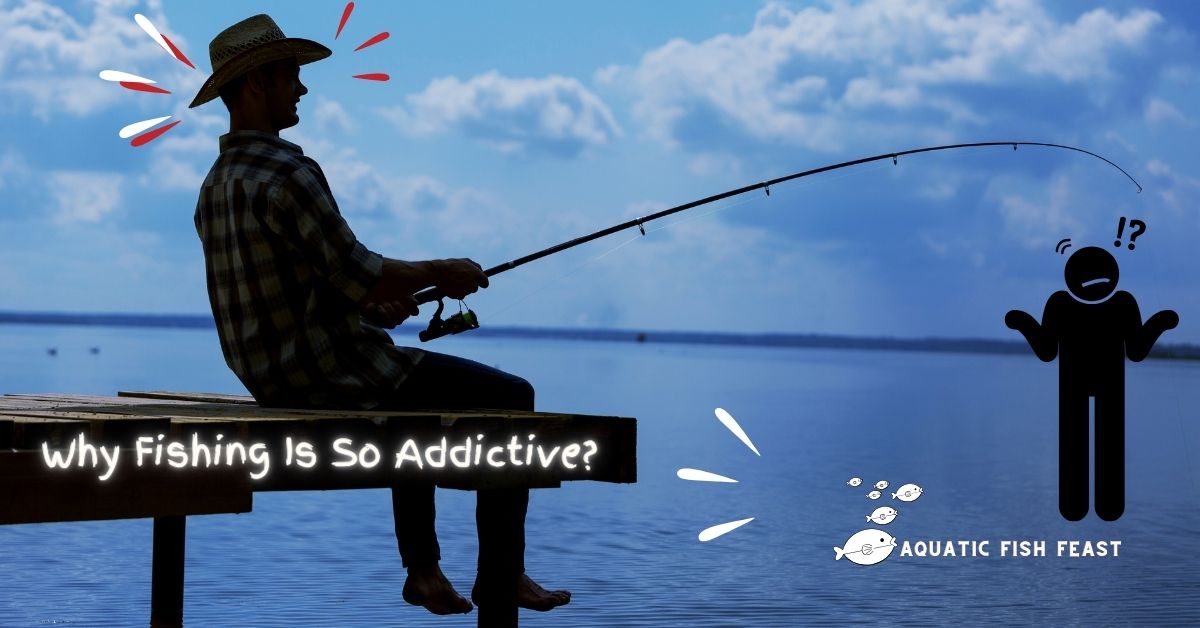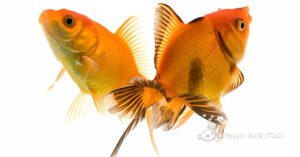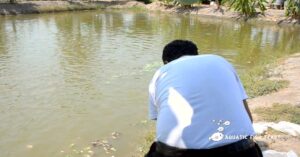Why fishing is so addictive has more to it natural attractions that connect the human passion to it, even more than just a hobby.
Why is fishing so addicting? It has the thrill of the catch to nature’s calm embrace; fishing delivers a unique blend of excitement, relaxation, and satisfaction.
Fishing gives delight that keeps people returning, especially in a quiet lake, the wide sea, or a serene riverbank.
In this article, we’ll examine the numerous variables contributing to fishing’s seductive appeal. This appeal has allowed it to captivate millions worldwide and make it a popular sport among people of all ages and backgrounds.
Let us get started!
Table of Contents
What Makes Fishing Such an Addictive Hobby?
Fishing, a popular hobby, captivates enthusiasts. The attraction comes from many reasons, each contributing to its irresistible charm.
Fishing requires talent, patience, and knowledge of fish behavior, bait selection, and casting. The thrill of learning these techniques and catching an honor is unmatched.
Fishing also connects fishermen to the environment by immersing them in lakes, rivers, and seas. This connection with nature helps relieve daily stress and promotes inner calm.
Anglers eagerly await the bite and the joy of reeling in a fish, adding to the excitement. Each catch is a victory over nature’s unpredictability, making the sport more appealing.
Fishing also develops relationships with friends, family, and other fishermen. Sharing stories of the one who got away or participating in friendly competitions creates lasting memories and bonds.
It is also a cultural heritage for many beyond its recreational value. Memories of family fishing expeditions generate nostalgia and tradition.
Fishing promotes health through outdoor activity, stress reduction, and mindfulness. Nature’s physical and mental benefits make it addictive.
The addiction is fueled by the pride and self-esteem gained from capturing a fish. Each catch is a victory of talent and perseverance, whether overcoming weather or elusive prey.
Moreover, the skill of fishing, nature, tradition, sociability, health advantages, and success make it addicting, drawing lovers back to the lake.
How Can You Tell If You’re Addicted to Fishing?
Fishing is fun and engaging, but how can you spot an addiction? To know whether you are addicted to fishing requires a close understanding of your behavior and how it impacts you.
However, here are some basic indications of addiction:
Constant Thinking About Fishing is one sign of addiction: When you find out, you are carried away about your next fishing trip, even at work or elsewhere.
1. Prioritizing Fishing Over Other Activities: Have more thought about prioritizing fishing activities and precedence over family, job, and social gatherings.
Involvement of always reading about fishing tactics, watching shows, or joining fishing forums to enhance your abilities demonstrates devotion and could also be among the signs of addiction.
2. Spending much on gear: Constantly looking for new fishing gear and spending a lot of money on rods, reels, and other gear, even when you don’t need them, is also a sign of addiction to fishing.
3. Frequent fishing trips: Fishing every weekend or more often might also indicate addition. Fishing may be an obsession if you’re continuously planning your next trip.
4. Emotional Impact: Feeling deep sadness when you can’t fish or thrilled when you catch one.
5. Sharing Your Passion: Fishing addiction is also indicated by frequent fishing conversations with friends, family, and strangers.
These signals might illuminate your fishing addictions. Being passionate about fishing is healthy, but you must balance it with other things.
Fishing may interfere with your everyday life or relationships, so review and create a balance.
If you recognize some of these indications, you may be addicted to fishing. Support from family or a mental health expert might help you resolve the situation and achieve equilibrium.
The Addictive Power of Fishing
Looking at it from the psychological and physiological aspects, fish can become addictive when neurotransmitters such as dopamine are released during the stimulation of the brain.
Resulting from the adaptability of the activities associated with pleasure and reinforcement of the brain during this whole process.
Here is the catch of the excitement of a productive fishing section: the brain reinforces and connects fishing and positive emotions, creating a cycle of anticipation, action, and reward, which is the addictive nature of the activity.
Another fact is that the repetitive motions involved in casting and reeling can induce a meditative state.
I have noticed all these years that successful fishing trips also promote relaxation and further reinforce the psychological appeal of fishing. And further reinforce the psychological appeal of fishing.
You can be sure that the combination of these factors, with the physical engagement and experiences of being in nature, always gives enduring allure and addictive quality to the fishing you can experience.
What Are the Dangers of Fishing Addiction?
Fishing addiction, like any other addiction, has several risks that can ruin a life. Let’s explore the serious concerns of fishing’s addiction effects:
1. Financial Strain: The financial impact is very sensitive, which you will not notice earlier until you enter into debt by the appeal of buying new fishing gear, going on many fishing trips, and indulging in related costs, which can quickly lead to debt and financial instability.
2. Neglect of Responsibilities: The more you get addicted to fishing, it takes all your attention and you become negligent to a lot around you, even your job, family, and social obligations are affected.
And when this happens it can harm your relationships, careers, and even your health.
3. Physical Health Risks: This is critical because when you expose yourself too much to the outdoors activities and inactivity while fishing can cause you several health problems.
Ranging from fatigue, dehydration, sunburn, and musculoskeletal disorders all severely impair physical health.
4. Mental Health Impacts: Just as fishing relieves stress, that is how it might worsen anxiety, sadness, and social isolation. Fishing as a coping method may prevent people from getting help and worsen their mental health.
5. Risk-taking Behavior: The quest for the ultimate catch or adrenaline boost may lead to recklessness. They may enter dangerous waters, trespass on private property, or neglect personal safety, jeopardizing themselves and others.
6. Interpersonal Problems: Fishing addicts value fishing above meaningful relationships and quality time with family and friends, which can strain relationships. This can cause bitterness, loneliness, and alienation.
7. Legal Consequences: Ignoring fishing restrictions, operating without permits or licenses, or fishing unethically can have serious legal consequences. Fines, criminal prosecutions, and a tainted reputation might harm one’s future.
8. Social Isolation: Overfishing can cause social disengagement since people prefer solo fishing to socializing. This seclusion might increase loneliness and disconnection from life beyond fishing.
9. Reduced Overall Well-being: Despite the brief thrills of successful fishing, addiction to angling generally reduces life happiness. This can cause persistent emptiness and unhappiness, lowering well-being.
10. Environmental Impact: Addiction-induced overfishing, habitat degradation, and conservation neglect can damage fragile ecosystems. This endangers biodiversity and marine life, threatening our world.
In essence, fishing addiction poses a complicated web of perils beyond the calm seas.
So you must recognize and manage these risks, which is essential to recovering a healthy, satisfying life without addiction.
Is Fishing Addiction a Real Concern?
Yes, fishing addiction is indeed a real concern for some individuals.
Some people struggle with fishing addiction. Fishing is frequently seen as a hobby; however, some people struggle with addiction.
Fishing addiction, like other addictions, may cause compulsive behavior, obsessive thinking, and bad life consequences.
Some people put fishing before their obligations, causing financial hardship from equipment and trip purchases.
Obsessive fishing addiction may also cause relationship problems and health problems. Fishing addiction may also cause overfishing and habitat loss.
Recognizing fishing addiction and getting help is essential to managing it and improving well-being.
How Can You Break Free from a Fishing Addiction?
Fishing addiction recovery requires a customized strategy. A revamped fishing addiction recovery guide:
Admit the Issue
Admit your fishing obsession. Consider the pros and cons of your fishing habits and how they have affected your life and relationships.
Get Help
Contact an addiction support group you trust. This might be family, friends, or addiction recovery support groups. Professional counseling or therapy may provide further help.
Define Limits
Limit your fishing to avoid relapse. This may mean limiting fishing time and money, avoiding triggers, and finding healthy methods to manage stress and boredom.
Explore Other Activities
Find new activities that are fulfilling and fun without addiction. Exercise, creativity, and socializing improve physical, mental, and emotional health.
Focus on Self-Care
Maintain your health by emphasizing self-care. Rest, eat well, and exercise regularly. Meditation, mindfulness, and relaxation can reduce stress and enhance inner peace.
Create Coping Strategies
Find healthy ways to manage fishing addiction urges and triggers. This might involve mindfulness, journaling, or professional help for emotional or trauma difficulties.
Maintain Accountability
Take responsibility for your actions and rehabilitation. Record your fishing habits, create reasonable targets, and celebrate minor wins.
Accept feedback and help to keep motivated and focused on rehabilitation.
Reduce Temptation
Avoid fishing addiction-causing scenarios. Avoid fishing-related activities and surround yourself with helpful people who encourage healing.
Be patient and persistent.
Recovery is slow and requires work. Understand that setbacks may occur, and be patient. Stay focused on recovery and think you can conquer addiction.
Celebrate Progress
Celebrate your fishing addiction recovery. Celebrate each milestone to show your perseverance. Keep going after your victories to overcome addiction.
These methods and assistance can help you overcome a fishing addiction and reclaim your life. You can heal, and you’re not alone.
Final Thought
Now that we have learned and understand why fishing is so addictive. I’ve always known that fishing is more than a hobby; it’s a meaningful experience that captivates people for many reasons.
However, fishing provides everyone with a different experience: the excitement of the catch and disappointment when there is no catch.
The way they react is part of an indication of fishing addiction.
Recognizing the symptoms of fishing addiction might help you understand your love. It merely needs to be good and balanced in your life.
As with any hobby, the key is to enjoy it in moderation and appreciate its joy and relaxation without letting it overshadow other important aspects of life.
So, grab your gear, head to your favorite fishing spot, and watch for the moments that make fishing an addictive and rewarding hobby.
Other Articles:




